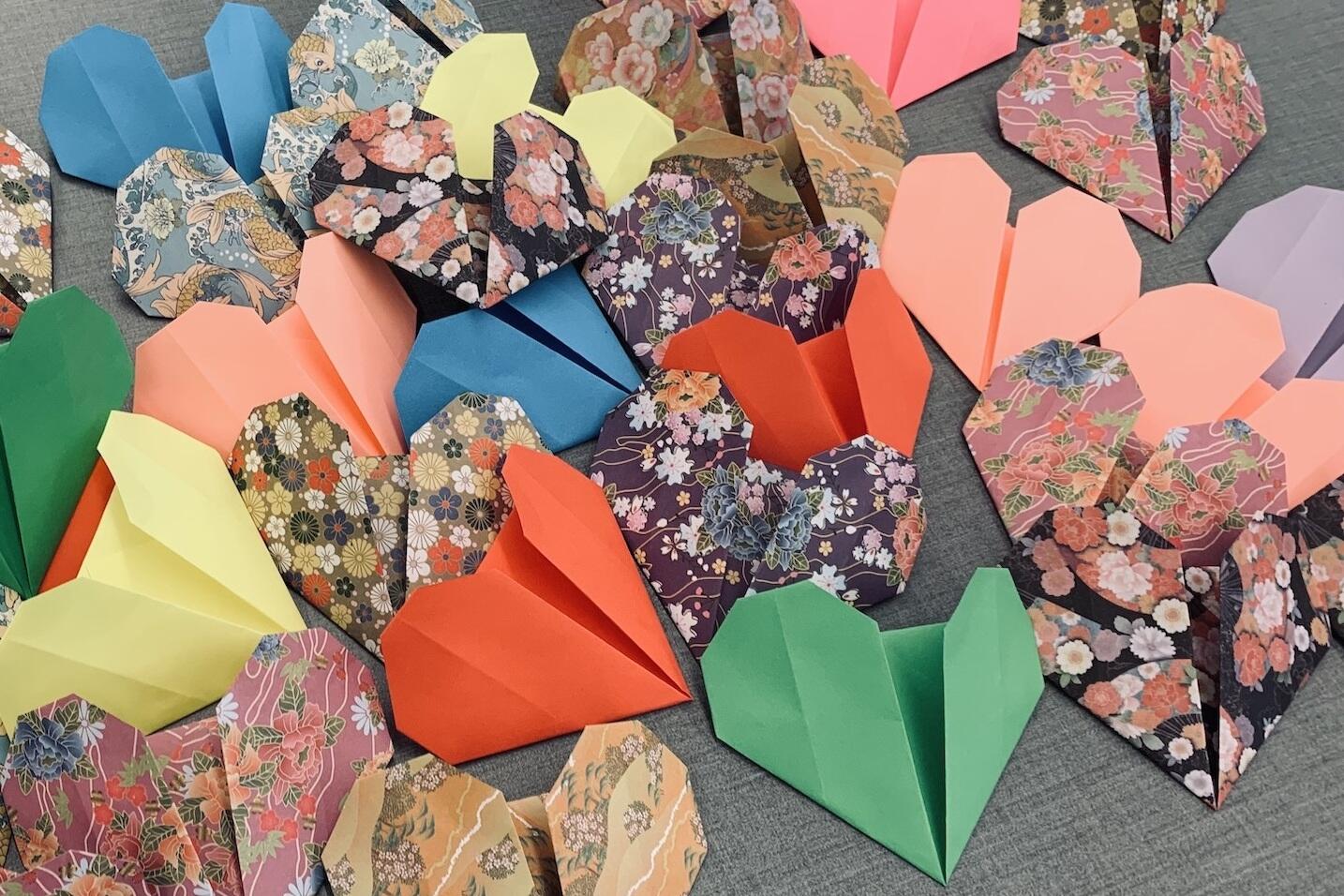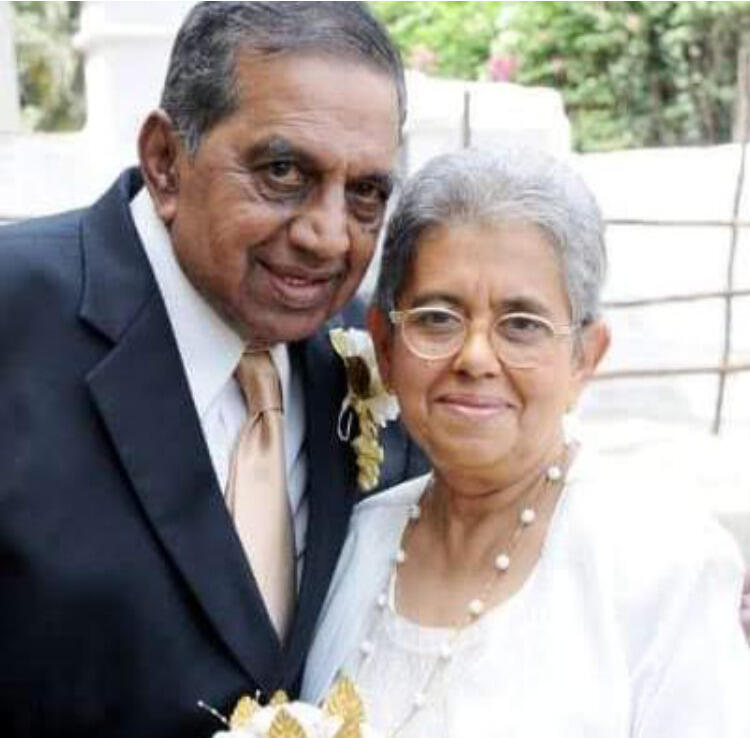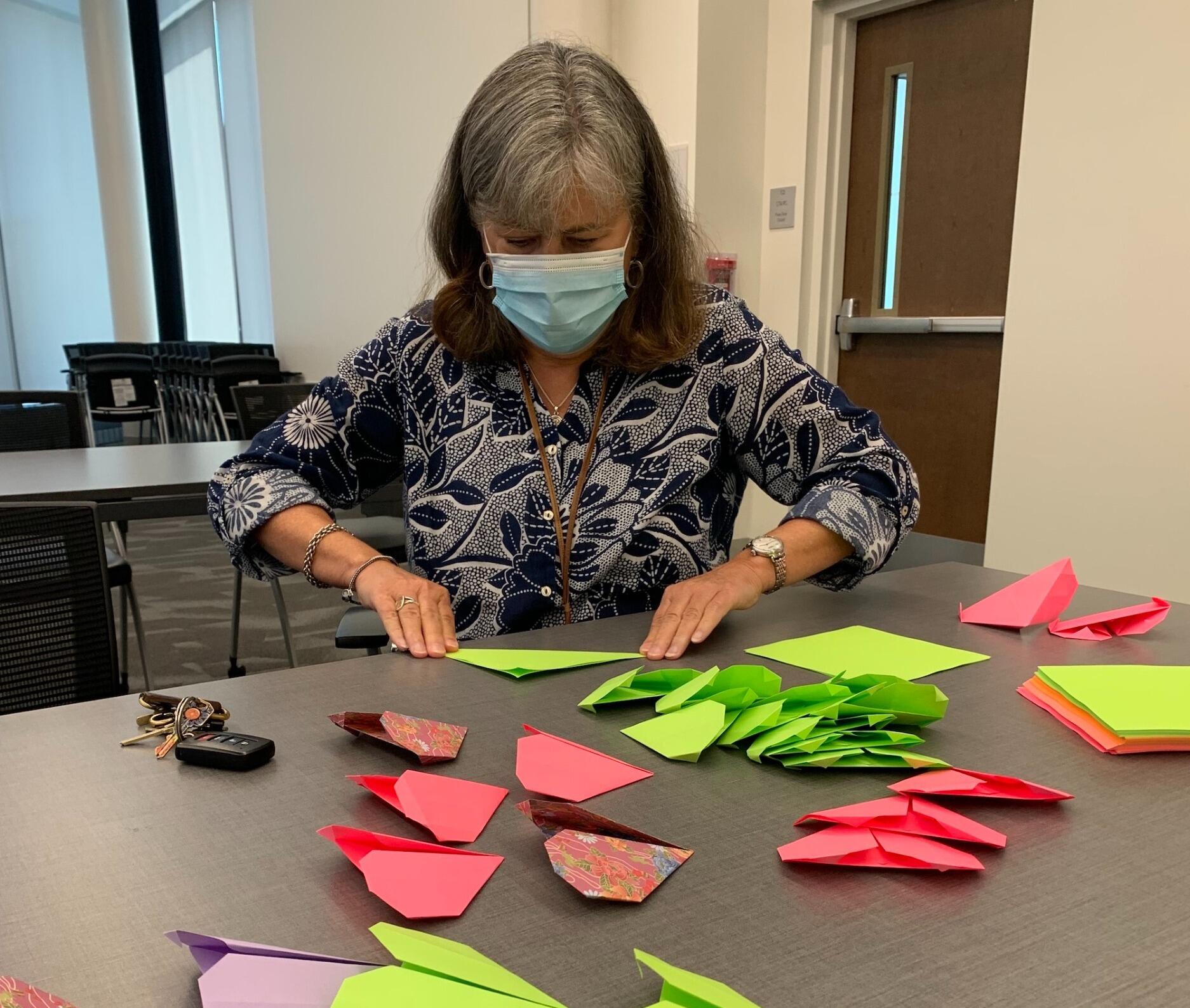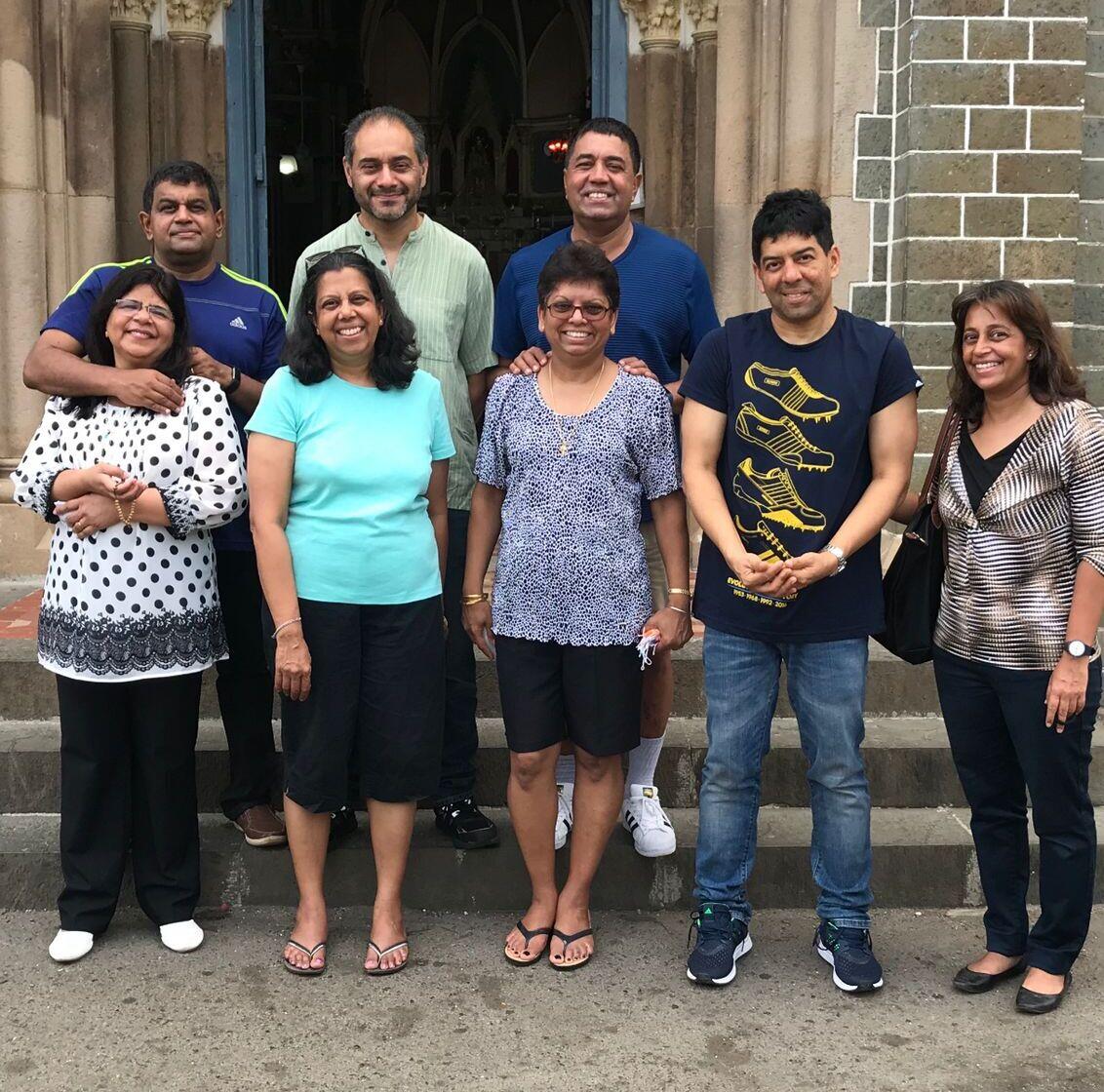
Aug. 25, 2021
As millions deal with grief, health professionals create and share origami hearts to promote strength, connectivity and healing
Share this story
Vilma D’Mello-Fernandes vividly remembers receiving the news of her mother’s unexpected passing one Friday in 2018. The certified wound and ostomy nurse at VCU Health was at work, and immediately began coordinating travel arrangements. She boarded a plane to India the following day.
India was home for her mother, father and two siblings. Additionally, two brothers residing in New Zealand made the trip back to India. The siblings had the opportunity to reunite and honor their mother’s life alongside their father, numerous extended family members and a host of friends and loved ones throughout the community in a large ceremony at a Catholic church. D’Mello-Fernandes felt comforted by the outpouring of love for her mother and the ability to be with her family at that time.
On April 2, 2021, D’Mello-Fernandes and her siblings suffered another loss. This time, it was the sudden passing of their father. But unlike with her mother’s passing, D’Mello-Fernandes was unable to travel to India, or anywhere else. There would not be a large funeral Mass with loved ones and friends. Churches and other religious institutions were shut down. The COVID-19 pandemic had changed everything.
The family was not able to plan a traditional church ceremony for their father. Instead, family members in India organized a small burial service early one morning, where fewer than 10 people were present. Other family members across the world, including in Canada and England, were invited to view the service from wherever they were. For D’Mello-Fernandes, that meant logging in to a Zoom link of her father’s ceremony close to 11:30 at night.
“The hardest thing for me, and I think for my siblings who are overseas too, was to not be there. It was really hard, very, very hard,” she said. “I just felt like, even in that time, we couldn’t be there for my dad.”

D’Mello-Fernandes said she, her siblings and other family later organized their own prayer service via Zoom, where they told stories and shared laughter about their dad. Those who were able also attended a Mass together.
“We tried to do things we could remotely, but together also,” she said. “It actually gave me a different perspective and a different understanding of what it must feel like for a person who has lost a loved one anywhere in this country or overseas to not be able to be there for their loved one.”
Aug. 30 is National Grief Awareness Day, which brings to light the meaning of grief and the different ways individuals cope with it. The day also is a reminder of how people can help others in the community, whether through a simple phone call, a visit or other friendly communication.
This year, chaplains in the Department of Patient Counseling in VCU’s College of Health Professions are adding a symbolic element to grief awareness by creating and sharing origami hearts across the university and throughout VCU Health. In addition to sharing resources such as those available through grief support groups like the Bereavement Coalition of Central Virginia, the hope is that the hearts will make a significant impact by inspiring others to reach out and connect.
“When I see a heart I think of love, and of what is central and important to me like my children, family and friends. Perhaps others can also relate to the symbol in this way,” said Allison DeLaney, who serves as pediatric and women’s health chaplain at VCU Health. “The hearts are also unique with many different colors and patterns. As a group of us were folding them, I realized that we all folded them a little differently, and every heart was not the same. I hope that these hearts show the beauty of diversity and that even the ‘imperfect’ ones have meaning.”

DeLaney, who is organizing the folding of origami hearts for Grief Awareness Day, says we grieve because we have loved something or someone.
“When I have grieved, I have sometimes felt overwhelmed by the sadness and loss, and forget that there is a connection to love,” said DeLaney, an instructor in the Department of Patient Counseling. “Somehow that reminder is comforting: that crying is not a weakness. Yearning for what is no longer here is a normal reaction. Tears once seen as weakness can be reframed in this light as an extension of love, so we can honor loved ones with our tears. They are not forgotten but brought forward in our remembering.”
Stephanie Hamilton, an assistant professor in the Department of Patient Counseling and family communication coordinator team leader, says the many layers of grief in the pandemic manifest in anger, fear and exhaustion.
“Many of us are eager to receive a third vaccine or booster, and seeking to understand the fears and views of friends, neighbors and relatives who have chosen to not receive a vaccine. This deepens the grief individually and as a community,” Hamilton said. “The hearts remind us we must continually give voice to love. We must choose the tenacious love that creates and holds with another the sacred space of grief, anger, fear — imperfect as we are — and [we must] listen, even if we do not understand, so that we can choose the high ground of journeying together towards healing.”

In reflecting on her grief, D’Mello-Fernandes recalls in the days after her mother’s passing, watching CNN host and best-selling author Fareed Zakaria. Zakaria shared a very personal story of losing his mother from COVID-19 complications and how he, too, was unable to travel. D’Mello-Fernandes says she was in tears listening to his story, because she could identify with his loss and feel his pain in not being able to bury his mother.
“This has taught me how each life is so valuable. What we go through is so critical to that person, but the identification of our losses is all the same, and it is equitable across the country,” said D’Mello-Fernandes. “I’m just hopeful that when the pandemic is over, we can go on and be as a family together, and pay our respects to my dad. It’s like an unfinished business that is incomplete.”
Editor's note: This story has been updated to correct a date.
Subscribe to VCU News
Subscribe to VCU News at newsletter.vcu.edu and receive a selection of stories, videos, photos, news clips and event listings in your inbox.



